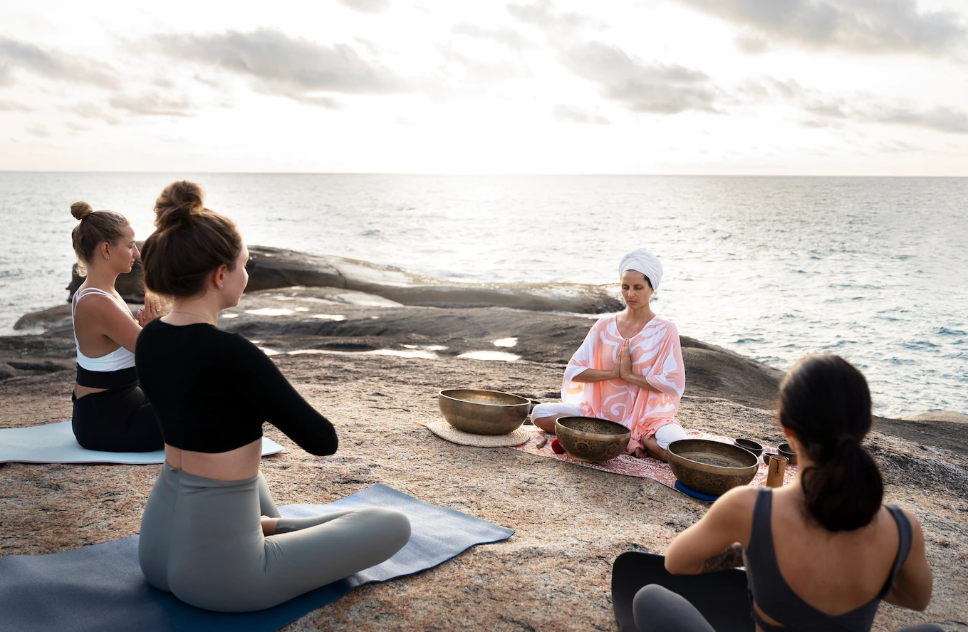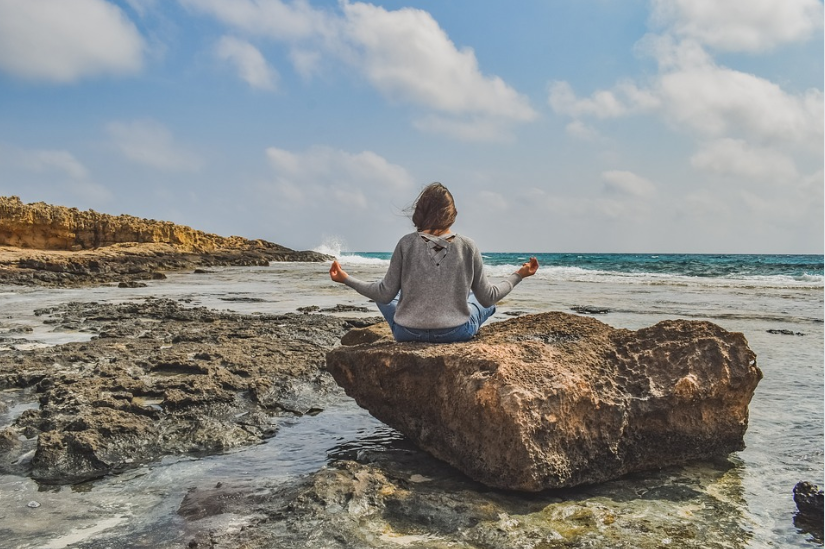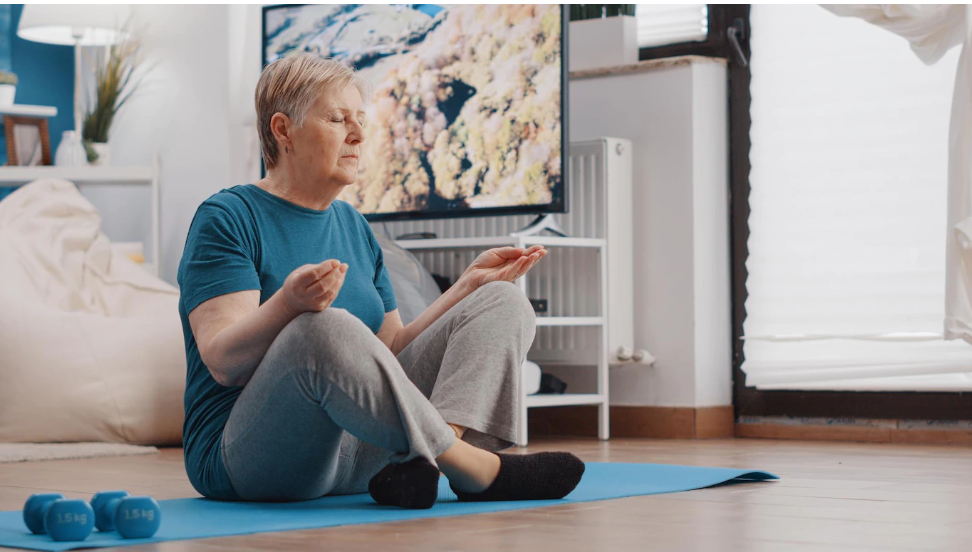How to Use Meditation For Anxiety
Learn how to use anxiety meditation to reduce your anxiety.

Selfpause Affirmation App
Download the app to get 1,000’s of affirmation meditations and everything you need to write, record and listen to your own.
Meditation is a powerful way to reduce your anxiety. Even five minutes a day can make a big difference. Studies have shown that it can lead to deep physical relaxation, increased empathy, a balanced sense of self, and improved cognitive flexibility. It can also give you insights into your mind and its workings. Learn how to meditate by enrolling in a course online.
Guided meditation

Guided meditation for anxiety is a useful practice to help overcome the negative effects of anxiety. It can help you relax around a feeling of anxiety by exploring the details of that feeling and staying with the sensations, sights, and sounds around you. Guided meditation for anxiety can also help you to develop a habit of mindfulness and awareness.
To begin the meditation, start by taking a deep breath. It may be helpful to use an audio or video recording with a soothing voice to help you relax. Next, find a comfortable position and sit or lay down. Some people find that sitting in a lotus pose helps them relax and reduce anxiety.
Mindfulness

Mindfulness meditation is a practice in which you pay attention to your body and breathe without judgment. The first step is to notice your feelings and thoughts, and then allow them to pass. It’s also helpful to try and notice how these feelings affect your body. You might notice that you feel tense in your stomach, or that you have clenched your fists.
Many people with anxiety struggle with racing thoughts, which can be incredibly negative. Mindfulness meditation is a mental training method that can help calm racing thoughts and help you feel more at ease. It teaches you to focus on the present moment without judgment, which is essential for coping with anxiety.
Mindfulness-based stress reduction

Meditation for anxiety and mindfulness-based stress reduction is a technique that helps you explore your feelings and thoughts. It helps you develop a deep sense of understanding and insight. This technique involves paying attention to your bodily sensations and the sounds and sights around you. It also helps you connect with the ground.
To begin, sit comfortably and notice what is happening in your body. Notice what makes you feel anxious, what storylines trigger these feelings, and how you are feeling. Then, focus on your breathing.
Meditative therapies

Meditation for anxiety can be a helpful tool to help alleviate symptoms of anxiety and other mental health problems. It involves practicing mindfulness and focusing your attention on the present moment. The goal of meditation for anxiety is to create a calm, non-destructive response to stressful situations. Various meditation techniques focus on the breath, body, and mind.
Researchers have studied meditative therapies for anxiety for several reasons. While the effectiveness of these techniques may vary, there is a trend that suggests that they may reduce anxiety symptoms. The effectiveness of meditative therapies will also depend on how effective and safe they are. While many studies have analyzed the effects of meditation, the majority of them did not focus on anxiety in particular. Rather, studies involving meditative techniques focused on stress and related symptoms.
Meta-analysis of RCTs on meditation for anxiety

Meta-analysis of RCTs on meditation has shown that the use of mindfulness meditation has beneficial effects on anxiety and stress in adults. The effects of meditation on anxiety are most pronounced among adults who have chronic anxiety and low levels of self-esteem. Although this evidence is mixed, a meta-analysis of RCTs on meditation and anxiety has shown that it is possible to treat anxiety and stress through meditation.
To make an effective meta-analysis of RCTs on meditation, the study had to be designed carefully and conducted actively. There were two kinds of control groups: specific and nonspecific. The nonspecific control group matched the intervention for time and contact. This allowed for the specific assessment of a meditation program, similar to the comparison against a placebo pill in a drug trial. The specific active control groups were those that were known to change clinical outcomes, such as a treatment for a specific problem.
Effectiveness
If you are a busy person, you might want to try incorporating meditation into your daily routine. It might take a little practice, but it will become easier with time. Try creating a schedule so you can plan ahead. Having a set time for meditation will help you make it more serious.
You can begin by focusing on your breathing. When you feel anxious, take a few deep breaths. Those few breaths will help you calm down.
Misconceptions
Many people believe that meditation is a good treatment for anxiety, but this is not necessarily the case. While meditation may be effective for those suffering from anxiety and depression, it is not the only option. There are many other methods of anxiety management, such as grounding exercises, the 5-4-3-2-1 method, and distraction exercises.
One misconception is that meditation is boring or requires a lot of concentration. While meditation can be very relaxing, the goal is to cultivate awareness, which is separate from relaxation. This distinction is important because there is a difference between meditation and stress management.
Our Top FAQ's
There are many potential benefits to using meditation for anxiety, including:
- Reducing the frequency and intensity of anxious thoughts and feelings
- Improving overall mental and emotional well-being
- Increasing self-awareness and the ability to manage emotions
- Reducing stress and promoting relaxation
- Improving sleep quality
- Enhancing the ability to cope with difficult situations
To get started with meditation for anxiety, there are a few key steps you can follow:
- Find a quiet, comfortable place to sit or lie down where you can be alone and undisturbed
- Sit in a comfortable position with your back straight and your feet firmly planted on the ground
- Close your eyes and take a few deep breaths, focusing on the sensation of the breath as it enters and exits your body
- Try to clear your mind of any distracting thoughts, and instead focus on a specific object, image, or mantra (such as a word or phrase that has personal meaning to you)
- If your mind wanders, gently redirect your focus back to your object of meditation
- Start with a short meditation practice (such as 5-10 minutes) and gradually increase the length of your sessions as you become more comfortable with the practice
There are many different types of meditation, and some may be more effective than others for reducing anxiety. Some popular types of meditation that may be helpful for anxiety include:
-
Mindfulness meditation: This type of meditation involves focusing on the present moment without judgment, and can be helpful for increasing self-awareness and managing emotions.
-
Loving-kindness meditation: This type of meditation involves sending feelings of love and compassion to oneself and others, and can be helpful for cultivating positive emotions and reducing negative thoughts and feelings.
-
Breath awareness meditation: This type of meditation involves focusing on the sensation of the breath, and can be helpful for promoting relaxation and reducing stress.
-
Progressive muscle relaxation: This type of meditation involves tensing and relaxing different muscle groups in the body, and can be helpful for promoting relaxation and reducing tension in the body.
The frequency of your meditation practice will depend on your individual needs and goals. Some people find it helpful to meditate daily, while others may prefer to meditate a few times a week. It may be helpful to start with a regular daily practice and see how it fits into your routine, and then adjust the frequency as needed.
In general, meditation is considered a safe and effective way to reduce anxiety and improve overall well-being. However, it is important to keep in mind that meditation is not a substitute for medical treatment, and if you are experiencing severe anxiety or other mental health concerns, it is important to seek professional help. Additionally, some people may find that meditation brings up difficult emotions or memories, and it may be helpful to work with a trained therapist or meditation teacher to process these experiences in a healthy way.
